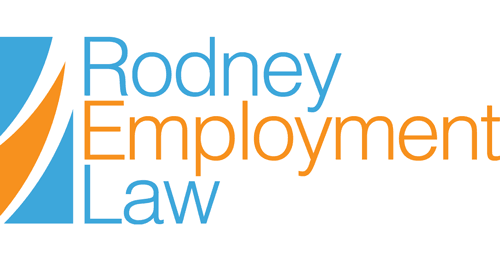Earlier this month, the Federal Court of Appeal firmly decided in Johnstone v Canada (Border Services) the meaning of ‘family status’. Family status is a prohibited ground of discrimination under both the Ontario Human Rights Code and the Canadian Human Rights Act, which means treating someone differently based on their family status is illegal. But what exactly does ‘family status’ mean? The only legal definition in the Ontario Human Rights Code says that family status is “the status of being in a parent and child relationship.” What does this new definition mean for employers and employees?
Fiona Johnstone, a former border security guard at Pearson International Airport, fought a decade-long legal battle to have a shift schedule that allowed her to balance her work and childcare obligations while remaining a full-time employee, which her employer refused. Johnstone initially brought her case through the Canadian Human Rights Commission, saying that she had been discriminated against at work on the basis of family status. The case rose through the federal court for review, which then turned the matter back to a Tribunal, where the matter was appealed again for review through the Court system.
In this most recent appeal, it was left up to the Federal Court of Appeal to decide what constitutes family status. Is adjusting your work schedule to arrange for child care an example of family status that an employer cannot discriminate for? What about adjusting work schedules to accommodate coaching your child’s sports team, or attending their dance recital?
The Court decided that childcare obligations under family status are those which cannot be moved or changed, in other words, ones that could violate the law if violated. For example, leaving a young child unattended in order to work a shift could be criminal, and would definitely qualify as a childcare issue under family status. However, the Court separated these issues from personal choices, like attending a field trip or a sporting event. The Court said there is a fundamental difference between the two, and the latter cannot be the basis for a case of discrimination.
What does this mean?
For employers, the lines of discrimination on family status are less murky. In the past, complaints of discrimination have arisen from parents who simply could not find alternative childcare, to parents who wanted to amend their schedules because they could not help out with their kids’ extra-curricular activities. Now, while employers should still be flexible with parents’ schedules where possible, the obligation has been lessened as a result of Johnstone. Accommodations must be made for parents who have a legal family obligation, but not for parents who simply want to spend more time at home.
For employees, the lines are clearer as well. Employers are now legally obliged to recognize childcare needs, especially those that are crucial to the health and safety of employees’ children.
There is a four-step test to determine what constitutes a childcare responsibility that would be covered:
- The child must be in your care. This does not have to be your biological child, but a child that you are responsible for, and if you were to neglect the child you would be held legally responsible.
- You have to show that you have a legal obligation to the child. If the issue is childcare, then you need to prove the children are young enough that they would require someone to watch them. There is no set age from the Court, but supervising a teenager after school would usually not be considered a legal obligation.
- You must demonstrate that it is a legitimate childcare issue and that you have no reasonable alternatives. If you have a spouse who can easily take over the responsibilities so you can keep your work schedule, then there is no child care issue at law. If though you have no other options and no third-party childcare is reasonably available, then there is a legitimate issue.
- Lastly, you have to show the issue is more than “trivial or insubstantial” to your childcare. If you are looking for accommodations to attend a weekly swimming or piano lesson, it would not qualify as something your employer has to accommodate. If, though, your work schedule does not allow you to get your children to or from school, or if your rotating schedule means you simply cannot make other reasonable arrangements, then that becomes a serious childcare issue.
The Bottom Line
The new law is intended to protect both employers and employees when it comes to family status discrimination. A flexible employer may allow you to book a shift off for the softball tournament or karate competition. But that may not always be possible, and parents must place work first sometimes in order to provide for their children. The law strikes a balance between the two by protecting childcare that is a legal obligation – if you have no other alternatives for someone to look after your children, you are now legally protected when you try to rearrange your schedule.
If you want to know how to best accommodate your employees’ scheduling requirements, or what your rights are as a working parent, contact us today for more information.
Disclaimer: this post is intended for educational and non-commercial purposes only and is not intended to be a source of legal advice to any person in respect of any particular legal issue; it does not create a solicitor-client relationship with any readers. If you have a legal issue or possible legal issue, please contact us.
Blog post by Shaun Bernstein